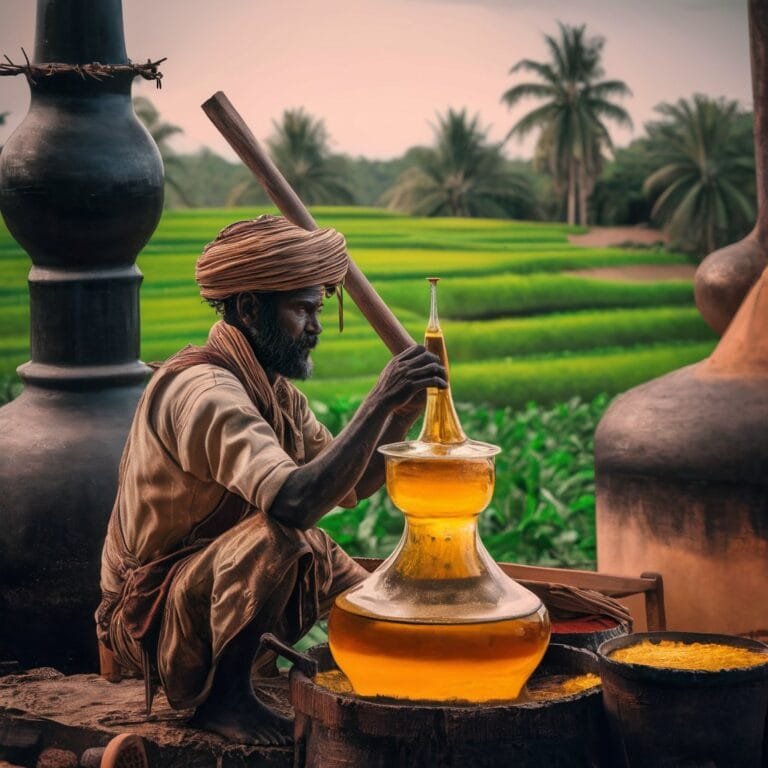The Art of Feni-Making:
Goa’s Traditional Cashew Spirit
Contents
Introduction to Feni: Goa’s Liquid Heritage
Feni, a distinctive spirit unique to Goa, represents centuries of tradition, culture, and craftsmanship. This UNESCO-protected heritage drink is more than just a local spirit; it’s a testament to Goan ingenuity and sustainable practices that have been passed down through generations.
Quick Facts about Feni:
- First distilled: Circa 16th century
- Main ingredient: Cashew apple (Anacardium occidentale)
- Alcohol content: 42-45% ABV
- GI Status: Received in 2009
- Traditional vessel: Traditional clay pot called ‘bhann’
- Distillation cycles: Double or triple distilled
Historical Journey of Feni
The story of feni is intrinsically linked to Portuguese colonization, who introduced cashew trees to Goa in the 16th century. Originally planted to prevent soil erosion, these trees became the foundation of a unique cultural heritage.
Historical Timeline
The Traditional Feni-Making Process
Detailed Production Steps
1. Harvesting
Cashew apples are handpicked when they fall naturally from trees, ensuring optimal ripeness. The best feni comes from fruits collected at dawn, preserving their fresh aromatics.
- Season: Late February to May
- Optimal picking time: Early morning
- Quality indicators: Fully ripe, unblemished fruits
2. Extraction
The fruit is crushed in the “colmbi” (pressing area) to extract the neero (juice). Traditional extraction involves barefoot stomping in a rock-cut basin.
- Extraction method: Manual pressing
- Equipment: Rock-cut basin (Colmbi)
- Duration: 12-15 minutes per batch
3. Fermentation
Natural fermentation occurs over 3-4 days in traditional clay pots or cement tanks. The process requires specific temperature and environmental conditions.
- Duration: 72-96 hours
- Optimal temperature: 27-30°C
- Vessels: Clay pots or cement tanks
4. Distillation
Traditional pot still distillation occurs in three phases: First distillation (Urrak), Second (Cazulo), and Third (Feni).
- First distillation yield: 15-18% alcohol
- Second distillation: 28-30% alcohol
- Final product: 42-45% alcohol
Feni Production Calculator
Sustainability and Modern Challenges
Today’s feni producers face several challenges while maintaining traditional production methods:
Current Challenges:
- Maintaining traditional production methods while meeting modern demand
- Climate change affecting cashew harvest seasons
- Standardization without losing artisanal character
- Marketing and international recognition
- Preservation of traditional knowledge
Interactive Feni Analysis Tools
Advanced Flavor Analysis
Flavor Profile Analysis
Discover more from GoaRoots
Subscribe to get the latest posts sent to your email.


Comments are closed.